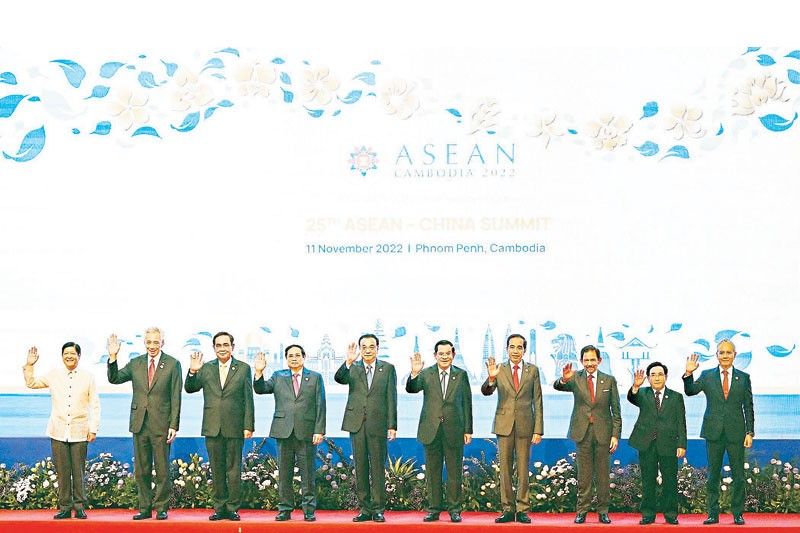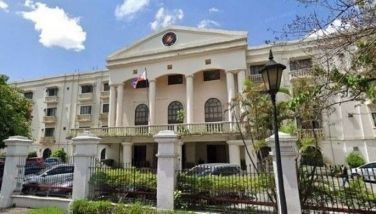Marcos Jr. rallies fellow ASEAN leaders on climate change

PHNOM PENH – Citing the vulnerability of developing countries to climate impacts, President Marcos rallied yesterday fellow leaders in the Association of Southeast Asian Nations (ASEAN) to come up with a “collective” action to fight climate change.
In his speech at the 41st ASEAN Summit Retreat at the Sokha Hotel here, Marcos said addressing the climate crisis is a “collective responsibility” of all nations, even as he called on developed nations to play a bigger role in global efforts to mitigate its risks and effects.
“Addressing climate change is our collective responsibility and developed countries should play a bigger role in global efforts to mitigate its risks, its effects, its damage and loss. Developing countries are more vulnerable, lose more when these climate shocks hit and have fewer resources to cope with the adverse effects of these shocks,” Marcos said.
The ASEAN can address these challenges by strengthening its cooperation mechanism on environmental sustainability and holistic green economic strategies, according to Marcos.
The President also emphasized the need to enhance climate resilience in developing nations by “using new agricultural technologies” to strengthen food security cooperation and food self-sufficiency in the region.
“We need to shift our paradigm from the old, traditional farming methods to climate-smart agricultural systems, to better shield us against the ongoing adverse effects of climate change,” said Marcos, who concurrently serves as agriculture secretary.
Marcos said caring for the environment and ensuring the Philippines’ resiliency and adaptation to the new normal of climate change are on top of his administration’s agenda.
“The measures we seek to undertake hopefully will enable us to become smarter, more responsible, more sustainable in all that we do,” he said.
The Philippines is highly vulnerable to the impacts of climate change, including sea level rise, increased frequency of extreme weather events, rising temperatures and extreme rainfall.
The Philippines ranked first on the 2022 World Risk Index, which measures a country’s exposure and vulnerability to natural hazards.
The report was released by Germany-based Bündnis Entwicklung Hilft and the Institute for International Law of Peace and Armed Conflict at Ruhr University Bochum last month.
Marcos earlier called for a better disaster response following the devastation brought by the recent tropical cyclones in the country.
- Latest
- Trending




























